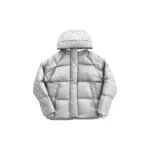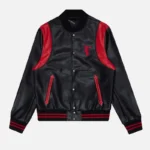As the demand for eco-friendly fashion rises, organic cotton clothing manufacturers are emerging as essential partners for brands dedicated to sustainability. Organic cotton production avoids synthetic chemicals, protects biodiversity, and conserves water, making it a preferred material for brands looking to reduce environmental impact. This guide covers the benefits of choosing organic cotton, what to look for in a manufacturer, and a selection of reputable suppliers to help you make a sustainable choice for your brand.
Why Choose Organic Cotton for Clothing?
Organic cotton is grown without the use of synthetic pesticides, fertilizers, or genetically modified seeds, making it a more sustainable choice compared to conventional cotton. The organic production process is designed to protect soil health, reduce water consumption, and avoid harmful chemicals that can affect farmers, wildlife, and end consumers. Here are some key reasons to choose organic cotton for your clothing line:
- Environmental Impact: Organic cotton farming uses up to 91% less water than conventional cotton and creates less CO₂, significantly reducing its environmental footprint.
- Health Benefits: The absence of harmful chemicals means organic cotton is safer for farmers and consumers, especially for those with sensitive skin or allergies.
- Higher Quality: Organic cotton fibers are typically stronger and softer, leading to a more durable and comfortable product.
What to Look for in an Organic Cotton Clothing Manufacturer
When searching for the right manufacturer, it’s important to evaluate several aspects to ensure you’re choosing a sustainable and reliable partner. Here are some factors to consider:
1. Certifications
Certifications help confirm that the manufacturer follows organic and ethical standards. Key certifications to look for include:
- GOTS (Global Organic Textile Standard): This certification ensures that the cotton is grown organically and that the processing meets strict environmental and social criteria.
- OEKO-TEX® Standard 100: OEKO-TEX® certifies that no harmful chemicals are used in the production of the fabric; thus, it is safe for consumers.
2. Transparency in Sourcing
Transparency is essential when choosing an organic cotton manufacturer. Look for suppliers that provide clear information about where their cotton is grown and processed, their environmental impact, and labor practices. Transparent manufacturers help you build trust with customers who value sustainable sourcing.
3. Quality and Consistency
High-quality organic cotton is essential for producing durable, comfortable, and attractive clothing. Ensure the manufacturer has a history of delivering consistent quality; therefore, they should maintain strong quality control processes to avoid issues in production.
4. Production Capacity and Flexibility
Consider the manufacturer’s production capacity and ability to scale with your brand’s growth. For smaller or newer brands, it’s beneficial to work with a manufacturer that accepts smaller minimum order quantities (MOQs) and can provide flexibility for custom designs or colors.
5. Lead Times and Shipping
Ensure the manufacturer can meet your brand’s timelines for production and shipping. Sustainable production often requires more time, so it’s essential to balance lead times with quality to meet market demand.
Top Organic Cotton Clothing Manufacturers
To help you get started, here is a list of reputable organic cotton clothing manufacturers known for their commitment to sustainable practices and high-quality products.
1. PACT
Based in the United States, PACT specializes in organic cotton apparel with a strong focus on ethical manufacturing. They produce a range of essentials, including t-shirts, underwear, and loungewear, using 100% GOTS-certified organic cotton.
2. Egedeniz Textile
Based in Turkey, Egedeniz Textile is one of the first Turkish companies to be GOTS certified. They produce a wide variety of organic cotton garments and are known for their commitment to sustainability and high-quality organic materials.
3. Raja Fashions
Raja Fashions, located in India, is a Fair Trade and GOTS-certified manufacturer that produces organic cotton clothing for international markets. They emphasize ethical practices and offer a range of styles, from casual wear to sportswear; moreover, they provide the flexibility to work with smaller brands.
4. Organic Cotton Colours
Organic Cotton Colours is a leading supplier of undyed organic cotton textiles. They work with Spanish and Brazilian farmers who grow organic cotton and use only natural colors in their garments. This manufacturer is a great choice for brands seeking non-dyed, hypoallergenic, and completely organic options.
5. Arvind Limited
Arvind Limited, a well-established textile manufacturer in India, has a strong commitment to sustainable practices. They produce high-quality organic cotton fabrics and garments for major brands, focusing on reducing water and energy use.
How to Begin Working with an Organic Cotton Manufacturer
Once you’ve identified potential suppliers, here are a few steps to help you start a successful partnership:
- Request Samples: Before placing a bulk order, ask for fabric and garment samples to evaluate the material’s quality, texture, and durability.
- Discuss Customization: If your brand requires specific designs, colors, or sizes, then confirm that the manufacturer can accommodate custom orders.
- Negotiate MOQs: Minimum order quantities can vary widely. Negotiate the MOQ with the manufacturer to find a balance that fits your budget and sales forecasts.
Benefits of Partnering with Organic Cotton Manufacturers
Working with organic cotton manufacturers offers multiple advantages beyond sustainability:
- Consumer Trust: Brands that use certified organic materials often attract consumers who value environmentally friendly and ethical products.
- Long-Term Savings: Although organic cotton can be more expensive initially, the durability and quality often result in fewer product returns and increased customer satisfaction.
- Market Differentiation: With the growing awareness of environmental issues, brands offering organic options stand out in a crowded market and appeal to a wide audience.
Conclusion: Making the Right Choice for Your Brand
Choosing an organic cotton clothing manufacturer is a significant step toward building a sustainable, ethical fashion brand. Furthermore, by selecting partners committed to eco-friendly and ethical practices, you align your brand with a growing market of conscious consumers. From certifications to production quality and transparency, in addition, every aspect of your sourcing strategy contributes to a positive impact on both the environment and your business.
Whether you’re a small brand just starting out or an established company aiming to expand your sustainable line, consequently, the right organic cotton manufacturer can help you deliver high-quality, environmentally friendly products that your customers will love. Start building a greener brand today and take a step toward a more sustainable future in fashion.




